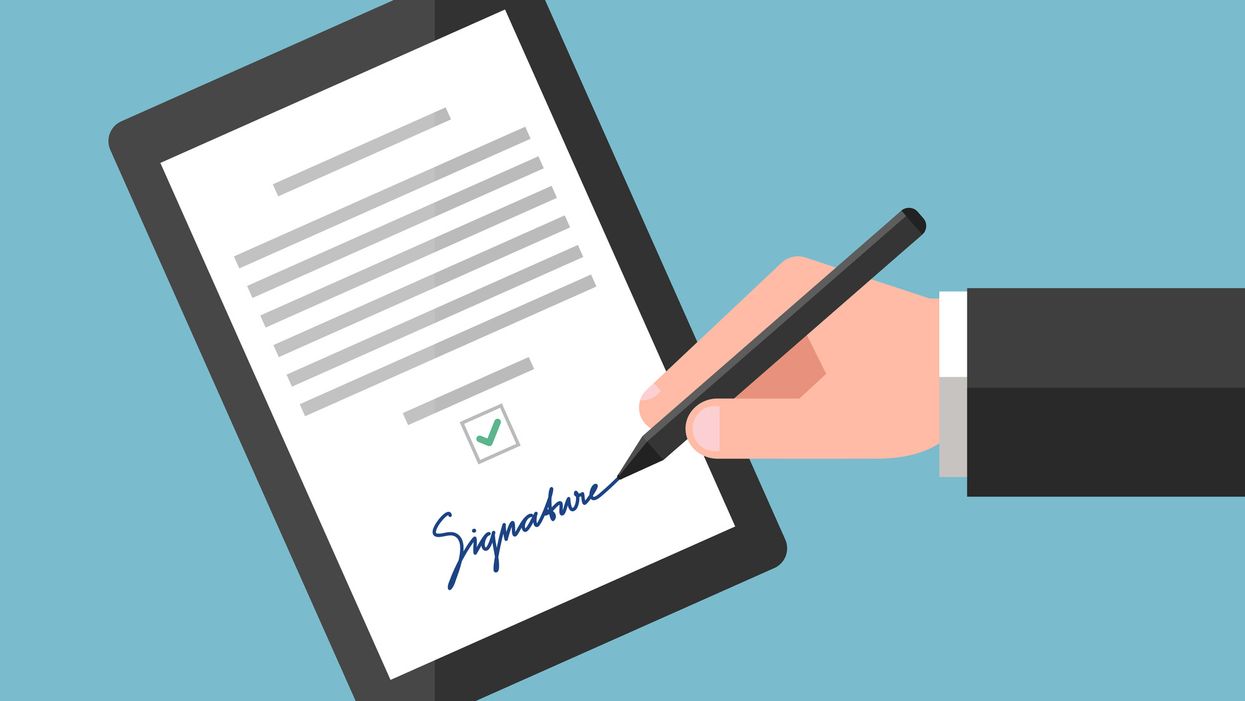When it comes to changing the rules for gathering signatures to get on the ballot during the coronavirus crisis, some states have been more lenient than others.
In Massachusetts, a state court has loosened signature requirements for politicians this year, given the national health concerns. But a federal court in Arizona did not consider doing the same for ballot measure campaigns.
Two Arizona campaigns sought permission to gather signatures electronically rather than in person because of Covid-19. But a federal judge on Friday dismissed their request and called their argument questionable.
Meanwhile, candidates in Massachusetts will have an easier time qualifying for the ballot this year after the state's highest court ruled that the unprecedented circumstances called for some adjustment to the requirements.
The Arizona Constitution requires signatures for ballot initiative petitions to be signed on paper in the presence of an organizer. The two groups who filed the lawsuit challenged statutes written based on the constitution, but not the constitution's language.
The two groups, Arizonans for Fair Elections and Healthcare Rising AZ, requested to gather e-signatures through the E-Qual online system, which candidates for Congress, statewide office and the Legislature are permitted to use. They said the Covid-19 pandemic made the in-person signature requirement an unconstitutional burden.
"Although Plaintiffs are correct that the COVID-19 pandemic constitutes an 'extraordinary circumstance' that has resulted in 'profound' dislocations, it is also a profound thing for a federal court to rewrite state election laws that have been in place since the 1910s," wrote U.S. District Court Judge Dominic Lanza, adding that the outcome of altering the state laws would be "distressing from a federalism perspective."
The two campaigns said they were "very disappointed" by the court's decision and they plan to appeal it.
"During this unprecedented health crisis, we're simply asserting that Arizona voters should not have to choose between their health and their basic first amendment rights. If the E-Qual system is good enough for politicians, then it is good enough for the people," they said.
A similar effort is being pursued by four other Arizona ballot initiative campaigns in the state's supreme court. A decision is likely to come by the end of the month.
Campaigns need to gather at least 237,000 valid signatures by July 2 for an initiative to qualify for the ballot in November. Even more signatures (at least 356,000) are required for constitutional amendments.
In Massachusetts, candidates will only need half as many signatures to qualify for the Sept. 1 primary ballot and they can use e-signatures to reach their goal. The lawsuit was filed earlier this month by four candidates seeking different offices.
Chief Justice Ralph D. Gants wrote in the court's opinion that the coronavirus has transformed the state's longstanding policy on signature requirements for candidates into an unconstitutional burden.
"If a candidate seeks to obtain signatures on nomination papers in the traditional ways, he or she reasonably may fear that doing so might risk the health and safety not only of the person requesting the signature but also of the persons who are signing, of the families with whom they live and potentially of their entire community," Gants wrote.
The court's ruling now permits candidates to collect e-signatures by allowing voters to download the nomination papers and sign them with a mouse or stylus, or they can print and sign them by hand. The forms can be mailed back to the campaign or scanned and emailed.
In its opinion, the court also pushed back the filing deadlines for district and county races to May 5 and June 5, respectively, to match the deadlines for federal and statewide offices.




















